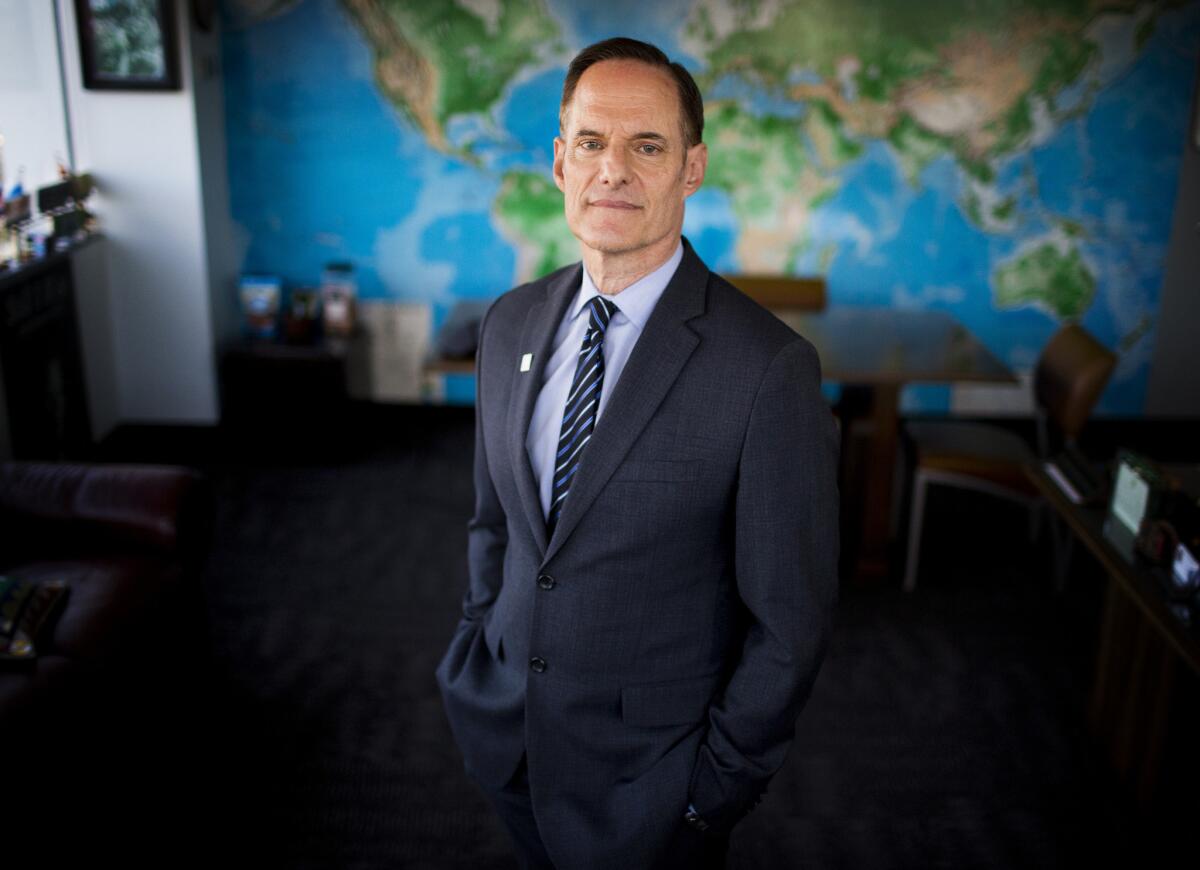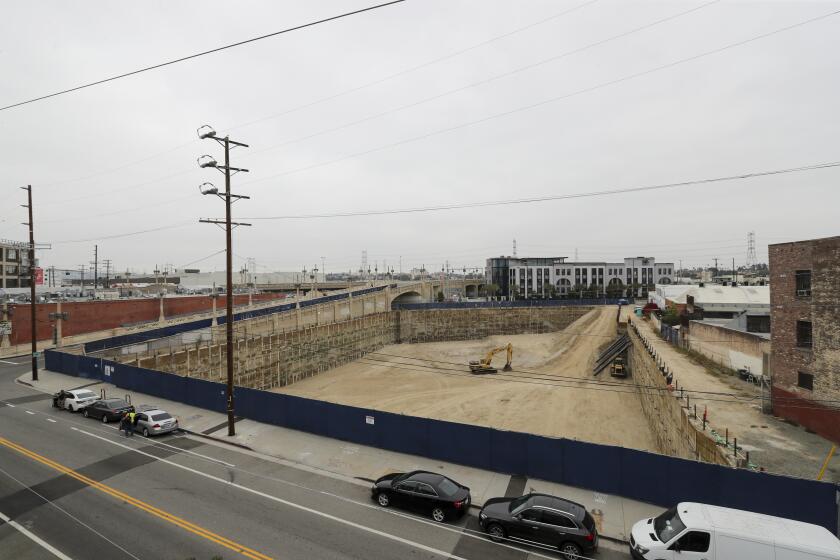AIDS nonprofit sues to halt L.A. real estate projects tied to Huizar and Englander

- Share via
AIDS Healthcare Foundation, a global nonprofit that has been a pugnacious player in local politics, sued the city of Los Angeles on Tuesday to stop some real estate developments vetted under Councilman Jose Huizar from moving forward.
Huizar has pleaded not guilty to federal charges that include bribery, money laundering and racketeering in an ongoing pay-to-play probe. Federal prosecutors have accused him of heading up a criminal enterprise fueled by cash bribes and lavish gifts from real estate developers seeking to build new skyscrapers in his downtown district.
In its lawsuit, AHF argues that the city should pause some of the building projects that were vetted under a council committee that was headed by Huizar and included Mitchell Englander, a former councilman who admitted to lying to federal investigators about cash and other gifts he had received from a businessman seeking to meet developers.
The nonprofit wants the court to stop the city from spending any money or taking further action to “facilitate, review, process, or see to completion” projects in which Huizar or Englander were allegedly engaged in violating California’s Political Reform Act, which includes a provision barring officials from making decisions in which they have a financial interest.
Although AHF mentioned four projects tied to the federal case, the lawsuit leaves the door open to blocking other projects, saying that “it is highly likely that the approvals of other real estate projects are similarly tainted.”
“If we believe that this was a systemic problem, then it seems like a deeper investigation is required,” AHF President Michael Weinstein said, calling for a “top-to-bottom review” of whether committee decisions were corrupted. “Otherwise you’re not pulling this weed out by its roots.”
Developers allegedly bribed L.A. Councilman Jose Huizar to help get their projects approved. Officials are wrestling with the future of those projects.
Weinstein said his group hadn’t determined how that investigation might occur but said it should be independent and start with projects with community opposition. AHF ultimately wants the court to toss out any city approvals for projects where it is shown that there has been a violation of the state law and the project may not have otherwise been approved.
“The laws need teeth — and it’s important for the city to truly enforce the law,” attorney and council candidate Grace Yoo said at a news conference Tuesday, applauding the filing of the lawsuit.
Rob Wilcox, a spokesman for Los Angeles City Atty. Mike Feuer, said their office would review the complaint and had no further comment Tuesday.
Several L.A. City Council members have called to reassess city approvals for projects involved in the criminal case, but whether the city can legally stop those building plans could depend on a long list of factors, including how far along developers are in the building process and what kind of approvals they have obtained.
Four downtown Los Angeles projects have been mentioned in the Huizar indictment as being tied to alleged bribery schemes. Real estate developers behind those projects have not been publicly charged or even named in the federal case; The Times and other media outlets have identified them based on key details included in the criminal complaint and indictment.
The AIDS nonprofit works globally to treat and advocate for patients but has also become known as a vocal force on housing and development issues in Los Angeles and across the state.
It has sued to challenge numerous projects in Los Angeles and suffered several defeats in such cases. Three years ago, it campaigned unsuccessfully for an L.A. ballot measure to crack down on “mega projects.” Some critics questioned whether its newest lawsuit was simply a gambit to slow or stop local development regardless of its merits.
“This seems to be a convenient excuse for them to say, once again, ‘We need to stop development,’” said Michael Lens, a UCLA associate professor of urban planning and public policy who opposed the ballot measure championed by AHF.
AHF has also sharply criticized how the city handles housing for homeless people and has started providing housing itself, drawing concerns from some tenants about building conditions. It is also pushing to expand rent control: AHF unsuccessfully backed a state ballot measure two years ago that would have repealed state restrictions on rent control and is now championing a new, narrower state measure that would allow local governments to expand which units are covered.
More to Read
Sign up for Essential California
The most important California stories and recommendations in your inbox every morning.
You may occasionally receive promotional content from the Los Angeles Times.















